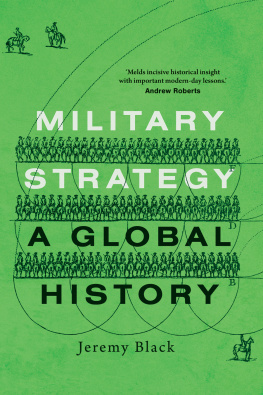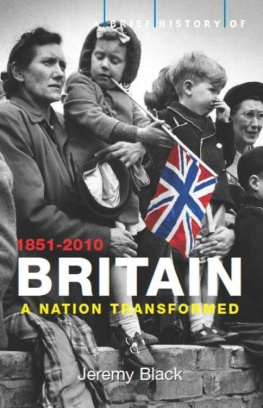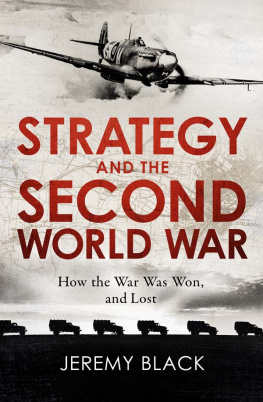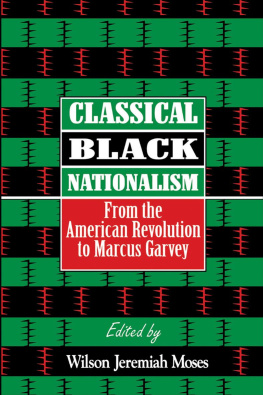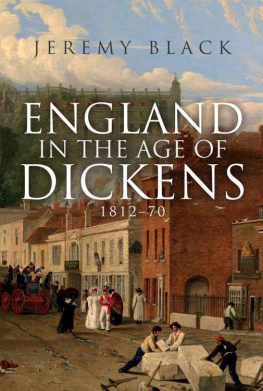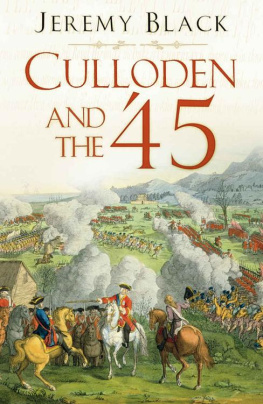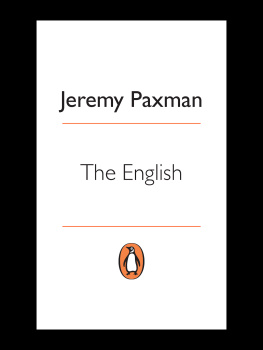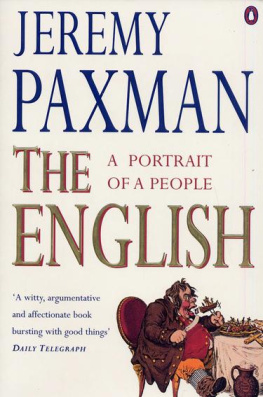Jeremy Black - English Nationalism
Here you can read online Jeremy Black - English Nationalism full text of the book (entire story) in english for free. Download pdf and epub, get meaning, cover and reviews about this ebook. year: 2018, publisher: Hurst, genre: Politics. Description of the work, (preface) as well as reviews are available. Best literature library LitArk.com created for fans of good reading and offers a wide selection of genres:
Romance novel
Science fiction
Adventure
Detective
Science
History
Home and family
Prose
Art
Politics
Computer
Non-fiction
Religion
Business
Children
Humor
Choose a favorite category and find really read worthwhile books. Enjoy immersion in the world of imagination, feel the emotions of the characters or learn something new for yourself, make an fascinating discovery.
- Book:English Nationalism
- Author:
- Publisher:Hurst
- Genre:
- Year:2018
- Rating:4 / 5
- Favourites:Add to favourites
- Your mark:
- 80
- 1
- 2
- 3
- 4
- 5
English Nationalism: summary, description and annotation
We offer to read an annotation, description, summary or preface (depends on what the author of the book "English Nationalism" wrote himself). If you haven't found the necessary information about the book — write in the comments, we will try to find it.
English Nationalism — read online for free the complete book (whole text) full work
Below is the text of the book, divided by pages. System saving the place of the last page read, allows you to conveniently read the book "English Nationalism" online for free, without having to search again every time where you left off. Put a bookmark, and you can go to the page where you finished reading at any time.
Font size:
Interval:
Bookmark:


HURST & COMPANY, LONDON
First published in the United Kingdom in 2018 by
C. Hurst & Co. (Publishers) Ltd.,
41 Great Russell Street, London, WC1B 3PL
Jeremy Black, 2018
All rights reserved.
Printed in England
The right of Jeremy Black to be identified as the author of this publication is asserted by him in accordance with the Copyright, Designs and Patents Act, 1988.
A Cataloguing-in-Publication data record for this book is available from the British Library.
ISBN: 9781787380837
This book is printed using paper from registered sustainable and managed sources.
www.hurstpublishers.com
For
Roger Kimball
Readers wishing to engage with the meat of the book should Immediately Advance to Go and turn at once to the Introduction. This Preface provides a personal note that may not be of importance and interest to others. With their emphasis on source-based work, historians are trained to be objective, and to sink their own personality from sight. Personal engagement is disapproved of, and understandably so if you are writing about an eighteenth century you can never visit or readily experience. At the same time, detachment can be pushed beyond the bounds of what the reader wants. I have long received comments, if not complaints, about writing in an impersonal voiceIt can be arguedand being too keen on the approach of On the one hand on the other. Indeed, I have, in turn, criticised the alternative argument by assertion approach that appears to characterise all too many writers, both historians and political commentators.
These methodological and stylistic points prove of particular relevance in this topic as it is one in which not only are many readers strongly engaged emotionally, but also they appear to expect a clear commitment by the writer in what they read. This situation has been taken further in the furore that accompanied and followed the United Kingdoms Brexit referendum of 2016. In many respects, this issue became a classic instance of the past being approached, debated, and understood, in terms of the present, and to an extent that drove out other perspectives. The present both set the terms of what was of interest, and greatly affected the responses of readers, thus providing a clear example of the politicisation of history.
Some will argue that there is an inherent politicisation in history, and, linked to this, that everything that historians write is subjective. This commonplace view, however, while understandable in terms of the stress on what to study and how to approach it, can only be taken so far, because there are events that happened, even if varied degrees of knowledge about what happened: you can say to me that China bombed Pearl Harbor in 1940, and I can tell you that Japan did it in 1941. Moreover, these events occurred for reasons, and explanations of them are not of equal accuracy. Everyone is entitled to an opinion, but not all opinions are equal.
An incremental, one hopes balanced, approach to trying to offer an objective account of the past, however, appears unwelcome to individuals who grasp and deploy it in the cause of present commitment. Furthermore, they do so from across the political spectrum. I have certainly found this to be the case with this book. I was aware that the subject was contentious, but have been struck by the single-mindedness and stridency with which, in conversation or correspondence, many have treated it. This has also been accompanied by a marked shrinking and foreshortening of the historical, cultural, and social frame of reference.
To many, the issue was defined not only by themselves and their experiences, but also by the events of very recent years. In this approach, English nationalism was a creation only of those years, and was defined in a partisan fashion accordingly. The earlier world of the Anglo-Saxon, Old English, monarchy of the tenth and eleventh centuries, or the Tudor England of the Protestant Reformation and the plays of William Shakespeare, were not mentioned. Others, indeed, had an awareness of a deep history or long-term structural existence to English nationalism, but they were a tiny minority. In some cases, but far from invariably, this difference was related to political opinions on Brexit. It is rarely automatic that a reading can be made from current politics to historical views, and vice versa. At the same time, there is frequently a correlation.
To this historian, the question might fairly be phrased, or rephrased, in terms of the relevance of the deep history to recent, current, and future contentions. This can be taken further by asking whether deep history was, is, and will be, reshaped by current concerns. So, yes, allowing for a deep history, there is a longstanding English nationalism, but what does it mean, and, separately, does it matter? The use of the battle of Bannockburn (1314) by Scottish nationalists showed that a deep history can be made relevant, with the Scottish discussion of the historical merits of independence perforce focusing on the centuries when Scotland was a separate state; but there has been no comparable English reference to the historical defiance of foreign invaders, whether Norman in 1066, French in 1216, or Spanish in 1588. Instead, the frame of historical reference is far shorter, namely that of the last century, and thus focused on the British experience. The key invasion of note is that threatened by Germany in 1940.
These are among the topics I address in this book. I have already written histories of the British Isles, Britain, England, and Wales, either from start to finish, or for part of their chronology. I cannot expect that they have all, or any, been read by readers of this work, so there is a degree of repetition in it. Nevertheless, this is a new book, and I have not addressed this question at length before.
The approach is essentially chronological, although the introductory chapter attempts to introduce some main themes from start to finish. A key one is that national consciousness is a hegemonic concept, in that states, and peoples or nations, are rarely united with shared views and a common purpose; although national myths about present identity and past history generally pretend otherwise and will doubtless continue to do so. So also with the concept of the zeitgeist (spirit of the age), and the related one, for those who differ from the alleged zeitgeist, of false consciousness.
Turning to the past, as public politicsespecially those associated with a representative system (Parliament in the English case), and, later, with a culture of printled to a discourse of national consciousness, the need to define such a concept in an acceptable fashion increased. It was more clearly politicised, taken from the literary discourse of nationhood that had been characteristic of the later medieval period, and given a number of competing partisan interpretations. This was readily apparent from the sixteenth century, although it would be mistaken to underrate the extent and politicisation of national identity in the fifteenth. It is, however, important to try to move from the partisanship linked to politicisation, past or present-day, when addressing this topic in a scholarly fashion.
I have found this an invigorating book. Some may believe it demonstrates that historians are out of touch. I would prefer to suggest that, aside from its inherent interest, the relevance of the past and of its consideration emerge far more strongly from this book. So does the difficulty of defining national identity and interests.
Font size:
Interval:
Bookmark:
Similar books «English Nationalism»
Look at similar books to English Nationalism. We have selected literature similar in name and meaning in the hope of providing readers with more options to find new, interesting, not yet read works.
Discussion, reviews of the book English Nationalism and just readers' own opinions. Leave your comments, write what you think about the work, its meaning or the main characters. Specify what exactly you liked and what you didn't like, and why you think so.



